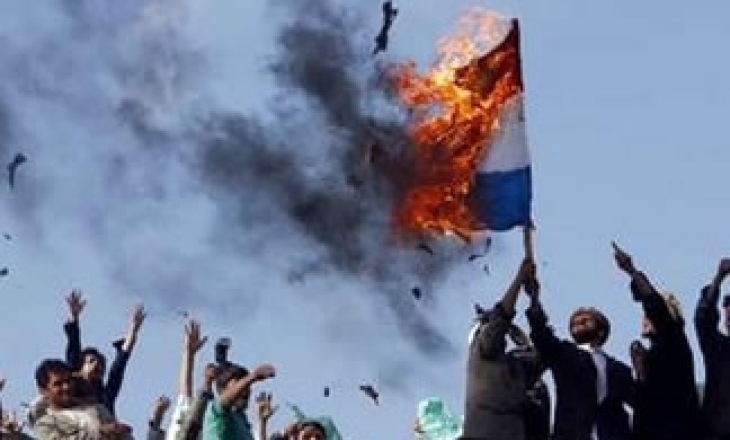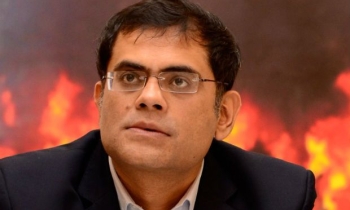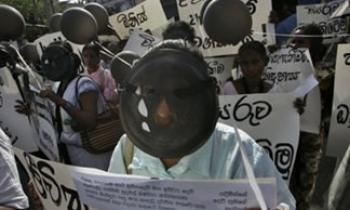The United Nations Human Rights Council is acting as a cover for Islamic and other countries aiming to restrict free speech. That's what free speech advocates have to say.
The 47-nation council passed resolutions Friday imposing new instructions for its investigator on freedom of expression, free speech advocates say, bows too far to concerns about defamation of Islam, which have flared again with a Dutch lawmaker's film on the Islamic holy book the Koran.
Despite objections from 40 rights organisations from around the world led by ARTICLE 19 and the Cairo Institute for Human Rights Studies (CIHRS), the UN council passed a resolution that turns the Special Rapporteur on free expression into a "prosecutor".
The resolution requires the UN Special Rapporteur on Freedom of Expression to report on abuses of the right to freedom of expression when they constitute an act of racial or religious discrimination. The resolution, proposed by the Organisation of the Islamic Conference (OIC), was passed by 32 council members with 15 abstentions. India was among the notable countries that abstained.
The Human Rights Council has no enforcement powers, but is supposed to act as the world's moral conscience.
Critics say the amendment will help to justify censorship and the stifling of dissent. "The change to the mandate of the Special Rapporteur on free expression is dramatic. It turns someone who is supposed to defend freedom of opinion into a prosecutor whose job is to go after those who abuse this freedom," says Reporters sans Frontières (RSF), one of the 40 organisations which appealed to the council not to amend the rapporteur's mandate.
The protesting rights groups, including 21 organisations from Islamic states, say the amendment changes the focus from protecting freedom of expression to limiting it, and goes against the spirit of the mandate. The groups also warn the vaguely worded amendment may lead to "misleading interpretations".
A day prior, the council passed a resolution proposed by Islamic countries saying it is deeply concerned about the defamation of religions and urging governments to prohibit it. Canada and Europe opposed the resolution, which was adopted 21-10, with 14 abstentions. Among others, India abstained.
Although the text refers frequently to protecting all religions, the only religion specified as being attacked is Islam, making specific reference to the increased "ethnic and religious profiling of Muslim minorities in the aftermath" of September 11, 2001.
RSF finds the influence of the OIC member states to be disturbing. "All of the council's decisions are nowadays determined by the interests of the Muslim countries or powerful states such as China or Russia that know how to surround themselves with allies," says RSF.
The pressure to protect religions from defamation has been growing, especially since the Danish cartoons controversy. Cartoons depicting the prophet Mohammed first published in a Danish newspaper then reprinted in various media worldwide in 2006 provoked international riots in which dozens of people were killed.
The resolution expresses "grave concern at the serious recent instances of deliberate stereotyping of religions, their adherents and sacred persons in the media."
Amnesty International says the resolution, which passed by a majority vote, showed "troubling signs that the council is moving away from its mandate to promote human rights in the direction of policing the exercise of human rights."
"It is not surprising or interesting that China, Russia, Saudi Arabia, Algeria and Azerbaijan would vote for such a proposition," argues Jennifer Windsor, Executive Director of Freedom House. "It is a disappointment that democracies such as Argentina, Brazil, Ghana, India, Nigeria, and Uruguay would abstain. That democracies such as Mali, Mexico, the Philippines and South Africa would vote in favor of such an odious declaration is appalling. Today they have earned the shame their citizens must feel."
Similar resolutions that allow for free expression to be restricted to ensure respect for religions have been passed since 2002. Internaitonal Freedom of Expression eXchange (IFEX) members, such as ARTICLE 19 and Freedom House, have campaigned extensively against the growing trend of using religious anti-defamation laws to limit free speech.
The argument against the resolutions is that religious believers have a right not to be discriminated against on the basis of their beliefs and are protected as such in international law. But they cannot expect their religion to be free from criticism. "The states chose to focus their efforts on protecting religion itself, not the believers and not freedom of religion," says ARTICLE 19.
Nor is this the first time the Human Rights Council, in place for nearly two years, has come under attack for being ineffectual. RSF has sharply criticised the council's recent decision to withdraw the Special Rapporteurs on Cuba, Belarus and the Democratic Republic of the Congo, countries "where serious human rights violations are committed every day."










